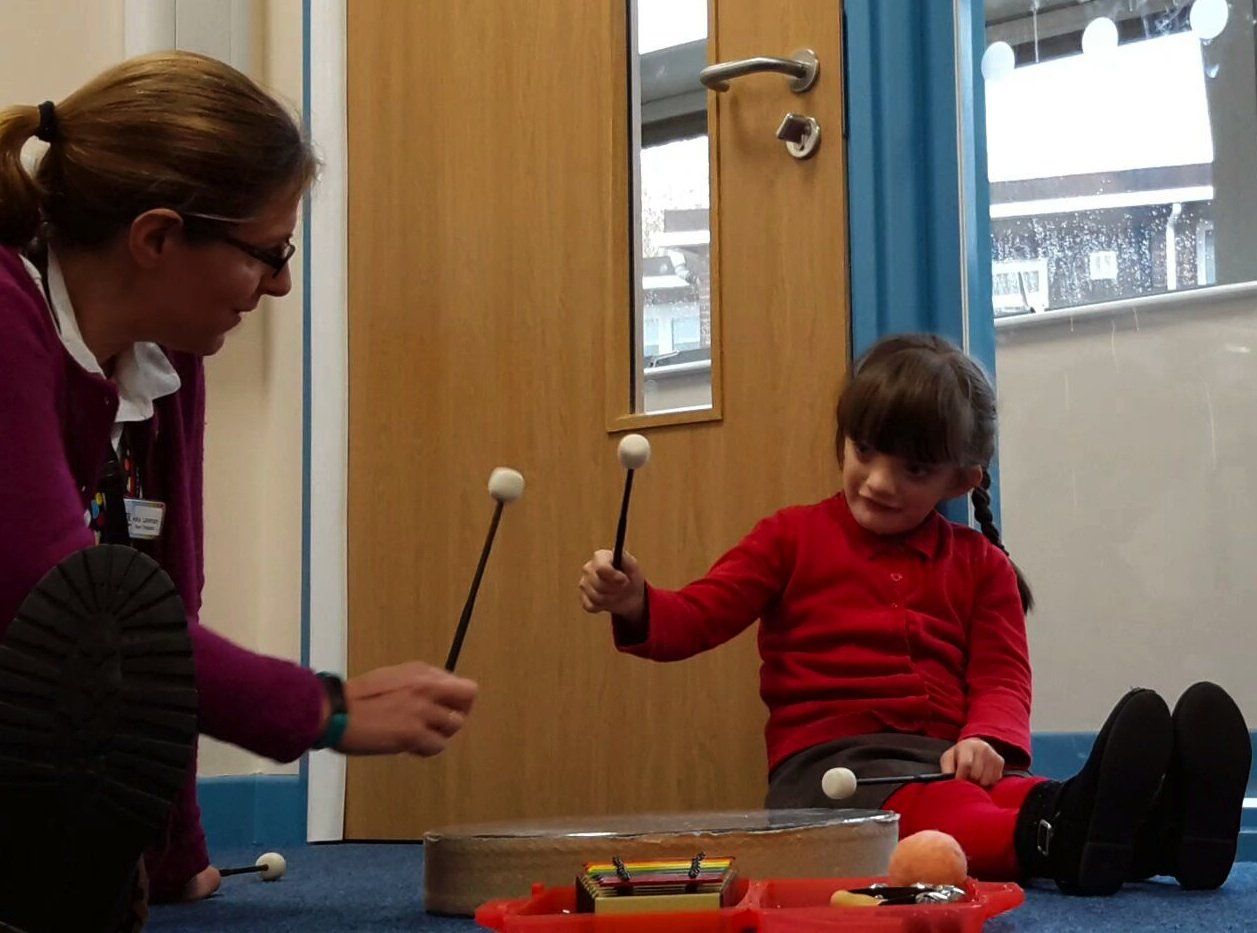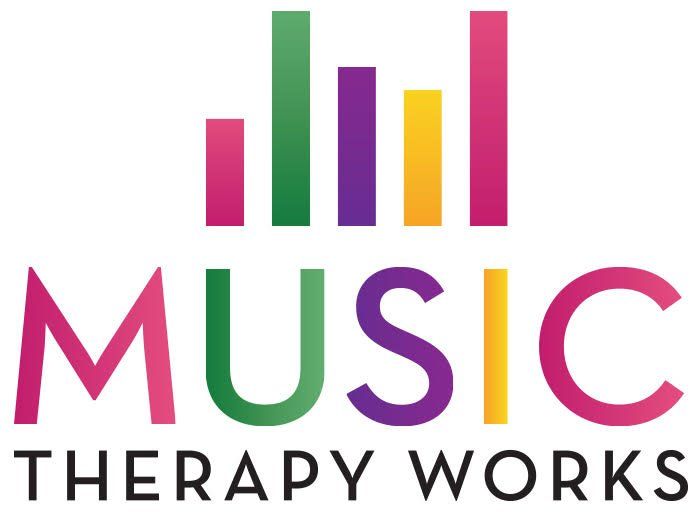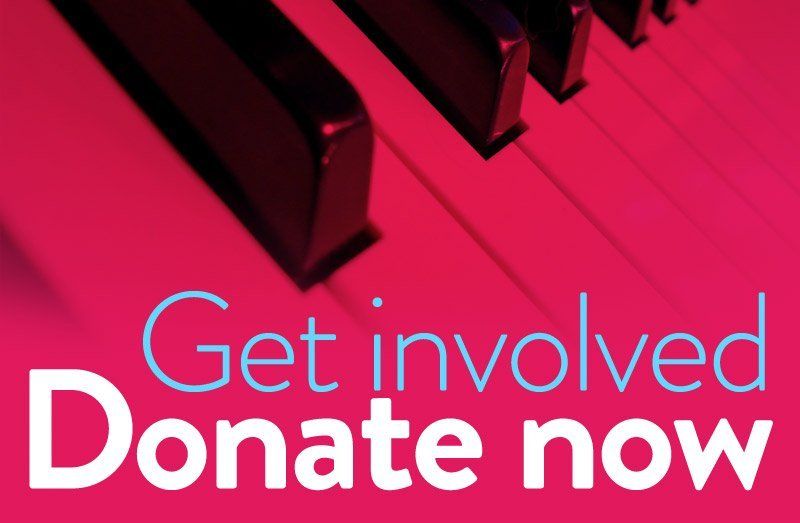
Some of the expected outcomes of music therapy include:
- developing an enhanced awareness of self, through musical (non-verbal) and verbal interaction
- sharing and expressing feelings
- development of physical, sensory and cognitive skills
- positive changes in mood and emotional well-being
- improved concentration and attention span
- increased self-confidence, self-esteem, personal insight and motivation
- development of independence and decision-making skills
- enjoyment and improvement in quality of life
- better social interactions with others
In addition, Music Therapy sessions can support the development of skills such as:
- active improvised music making (using both instruments and voice)
- listening
- gross and fine motor movements
- sequential memory and recall of information
- self-management of behaviour
- reduction in self-harm
When working with adults with dementia, MT has also been shown to impact both in the moment and in a lasting way. MT impacts the following areas:
- Psychosocial
- Neurological
- Behavioural
- Physiological
Music Therapy can be an effective non-pharmacological approach to reduce anxiety and agitation.

